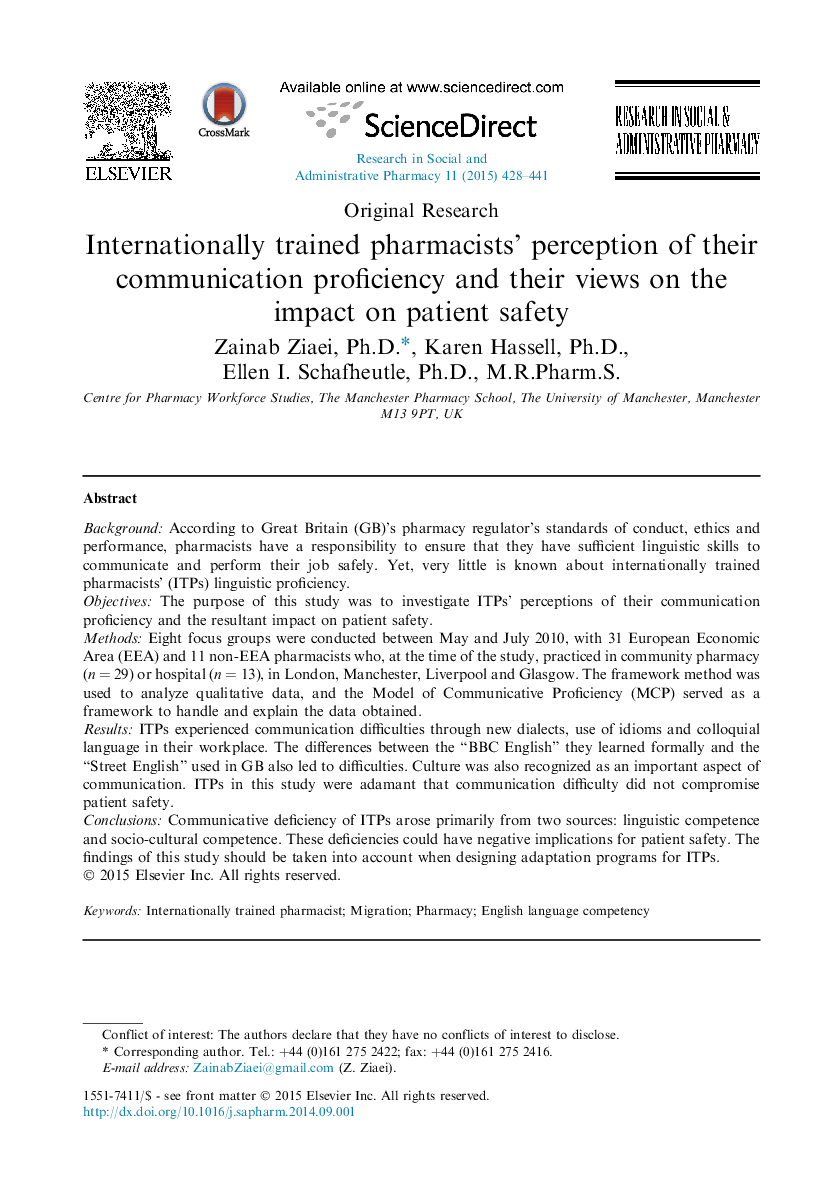| Article ID | Journal | Published Year | Pages | File Type |
|---|---|---|---|---|
| 2508322 | Research in Social and Administrative Pharmacy | 2015 | 14 Pages |
BackgroundAccording to Great Britain (GB)'s pharmacy regulator's standards of conduct, ethics and performance, pharmacists have a responsibility to ensure that they have sufficient linguistic skills to communicate and perform their job safely. Yet, very little is known about internationally trained pharmacists' (ITPs) linguistic proficiency.ObjectivesThe purpose of this study was to investigate ITPs' perceptions of their communication proficiency and the resultant impact on patient safety.MethodsEight focus groups were conducted between May and July 2010, with 31 European Economic Area (EEA) and 11 non-EEA pharmacists who, at the time of the study, practiced in community pharmacy (n = 29) or hospital (n = 13), in London, Manchester, Liverpool and Glasgow. The framework method was used to analyze qualitative data, and the Model of Communicative Proficiency (MCP) served as a framework to handle and explain the data obtained.ResultsITPs experienced communication difficulties through new dialects, use of idioms and colloquial language in their workplace. The differences between the “BBC English” they learned formally and the “Street English” used in GB also led to difficulties. Culture was also recognized as an important aspect of communication. ITPs in this study were adamant that communication difficulty did not compromise patient safety.ConclusionsCommunicative deficiency of ITPs arose primarily from two sources: linguistic competence and socio-cultural competence. These deficiencies could have negative implications for patient safety. The findings of this study should be taken into account when designing adaptation programs for ITPs.
